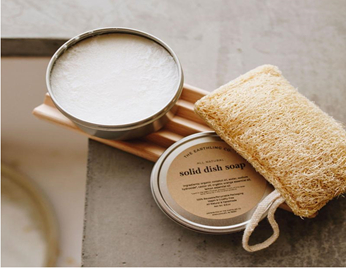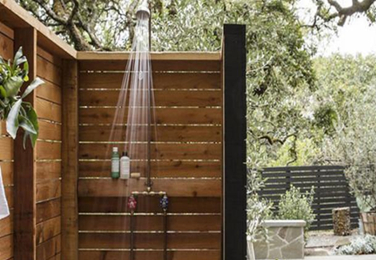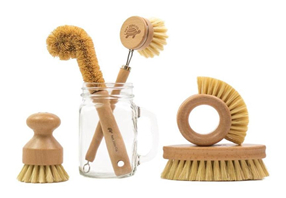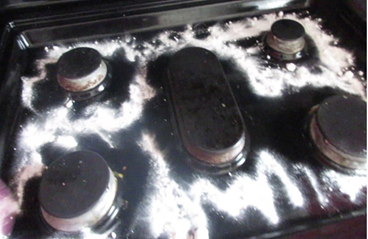
Home >> Source Reduction Campaign
| Home | Source Reduction | Friends of Green Friends | Newsletters |
| Gardening | Resources | What You Can Do | Embracing The Trees |
| Ideas for Eco Friendly Cleaning |
|
GreenFriends North America recently received a request that made us think: how can we clean in an eco-friendly way in and around the home? We’ve compiled some initial ideas below, but please feel free to keep the conversation going and write to us with your suggestions.
Disclaimer: All the suggestions here are for general cleaning and not disinfecting for COVID. Please follow CDC guidelines for COVID-level disinfecting around the home, which can be found here. All suggestions made are simply suggestions and should not be taken as expert cleaning advice. Reduce Waste |
| Generally speaking, to clean the home in an eco-friendly way, let’s consider the amount of waste we generate, and how we could keep more things from entering landfills. This would require us to choose long-lasting, biodegradable or recyclable options for household items and other items we use.
For instance, loofah sponges that are compostable for dishwashing; general-purpose cleaning brushes made of natural fibers and wood; toilet brushes made of silicone which will last longer than plastic-bristled ones; eco-friendly toothbrushes (some toothbrush suppliers offer a take-back recycling program) and eco-friendly toothpaste (toothpaste powder or tablets instead of tubes). We can also increase our intake of fresh food (if home-grown, even better), reduce plastic/metal waste; reduce and compost any leftovers or scraps from cooking; and use compostable bags for mainstream trash we may generate. On a related note, we can simplify our lives by choosing to buy things that are easy to keep clean. For instance, if we have the choice, we can pick washable carpets that are easy to throw in the wash (ideally made of cotton or compostable materials) so we don’t need to dispose of them or use heavy carpet cleaning solutions to clean them. Of course, if we do need to deep clean things, we can use eco-friendly mixtures to do so. |
|
Eco-Friendly Cleaning Mixtures: Dish Soap, Baking Soda, and Essential Oils As the simplest line of defense, dish soap and regular soap are good for routine cleaning and can kill many germs around the house. Another reason to use regular soap is that it doesn’t increase the resistance of bacteria. However, per Scientific American Magazine, it may be best to avoid antibacterial soap, as it isn’t really necessary and may do more harm than good. Using antibacterial soap regularly can actually lead to the development of even stronger types of bacteria You can make an all-purpose household cleaner by mixing dish soap and water in a 1:50 concentration (2.5 Tsp per 16 oz). If you are using castile soap instead of dish soap, you can follow the dilution recommended by one castile soap manufacturer of 2 Tbsps per 16 oz to make an all-purpose cleaner. To use your homemade cleaner, spray, and allow it to sit on the surface for a little while, then scrub and follow with a water rinse. |
|
Beyond surface cleaning, for tough stains, you can make a paste of baking soda and water and allow it to sit on the stain before scrubbing away or applying a soap-based cleaner to it. This paste can also work well to scrub sinks and toilets, speaking from experience. Please exercise caution with bathtubs and shower pans, as baking soda is a mild abrasive and may scour some of the coating off (test on a small, inconspicuous area first). Finally, you can add essential oils to our homemade cleaners/baking soda paste, as they have been found to have wonderful antibacterial and antimicrobial properties. Clove, cinnamon, tea tree oil and thyme have all shown promise in fighting common household germs, including E. coli and Staphylococcus. One study showed that a 1/100 dilution of Cinnamon essential oil or Clove essential oil to water (100 drops per 16 oz) can be effective against food-borne germs. Instead of replacing soap with essential oils and water, I simply add them to homemade soap-based cleaners/laundry soap (maybe 20 - 40 drops per 16 oz). Kitchen and Laundry Ideas |
|
|
|
For the kitchen, in addition to composting, using baking soda paste for the stove, compostable/loofah sponges, one can use soaps with eco-friendly packaging and use recycled water to rinse dishes. One way to recycle water could be to use the water from rinsing veggies and fruit to soak dishes before washing. As for eco-friendly packaging, using solid dish soap or dish powder to wash could reduce plastic waste. Another idea could be to use the dishwasher, and see if it saves water. Some dishwashers are designed to use and save on water compared to washing dishes by hand. If washing by hand, turn off the faucet whenever possible (soak dishes instead of scouring them with the water running), or use the two-sink method (one sink for soaping, one sink for rinsing) if you have two sinks, or a dish bucket and a sink. Similar waste reduction principles can apply to doing laundry as well - namely, that of reducing dryer sheet waste and laundry soap bottle waste. Instead of dryer sheets, you could use wool dryer balls with essential oils. These reduce static, help scent the clothes, and according to some, speed up the drying. Additionally, you can use laundry strips or solid laundry soap bars (dissolvable in water to form soap) for clothes washing, and try to use cold water and wash clothes only when dirty. You can also make laundry soap at home using an online recipe. I found this too time consuming so switched to buying dissolvable laundry soap bars. |
 |
| Recycle and Reuse Resources from the Shower
Finally, if you let the water run initially to warm up the water when having a shower, you can collect that water in a bucket and use it for other household chores like cleaning, watering the plants, flushing the toilet, etc. In this way, you reduce the water used when showering. |
 |
| Share Your Eco-Friendly Cleaning Tips
We’re hoping this will just be a starting point for eco-friendly cleaning ideas around the home. Please do feel free to share thoughts, ideas or suggestions by emailing info@greenfriendsna.org. By sharing ideas that others adopt, we can make a far greater impact. We look forward to learning from everyone’s ideas. Diksha, Washington DC |
| Disclaimer
Any reference in this website to a specific product, process, or service does not constitute or imply an endorsement by GreenFriends North America or MA Center. |
Read Youth Gardening from the Q2 2021 newsletter >>
| Home | Source Reduction | Friends of Green Friends | Newsletters | Resources | What You Can Do | Embracing The Trees |
For more information, e-mail info@greenfriendsna.org |
||||||


